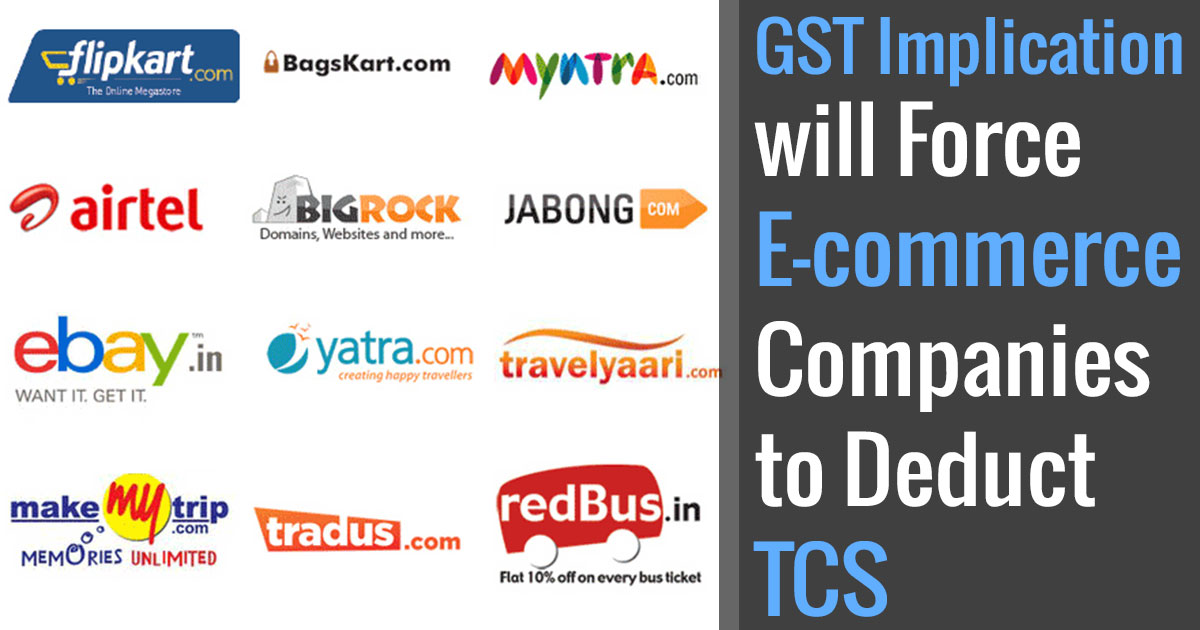
Web-based business administrators like Flipkart and Snapdeal should deduct TCS (tax collected at source) in between making payments to their providers, as per the new model GST law, which has modified the meaning of ‘aggregator’. The model GST law accommodates 1 percent TCS to be taken by the E-business administrators.
Read Also: GST Forms: Return Filing, Rule, Registration, Challan, Refund, Invoice
Meanwhile, the draft model GST law does not give any meaning of ‘aggregators’, saying that the administration would later turn out with a notice determining which sort of organizations would be secured under the term.
Aggregators, for the most part, incorporate Ola, Uber, and UrbanClap which act as stages for giving transport and different administrations and here the TCS arrangement won’t make a difference to aggregators. E-commerce organizations will likewise need to document returns on the TCS cuts.
The model law has characterized ‘electronic business’ as an offering of merchandise or administrations, including computerized items, over the electronic system and ‘Electronic commerce operators’ would mean those people who claim, work or oversee computerized or electronic office or stage for electronic business.
Recommended: GST Impact on E-commerce Sector in India
The changes are subtle and on this new revision one of the experts says that “the proposal will increase the compliance burden on e-commerce operators as they will have to deduct 2 per cent TCS and deposit it with the government.”
“It will not increase the incidence of taxation on consumers as the supplier will get a tax credit for the TCS.” The measure, Nangia & Co-Director Rajat Mohan told. Experts also explained that “this would mean that a similar amount will have to be levied on inter-state movement of goods, taking the total TCS deduction to 2 percent although burden on consumers will not increase.”